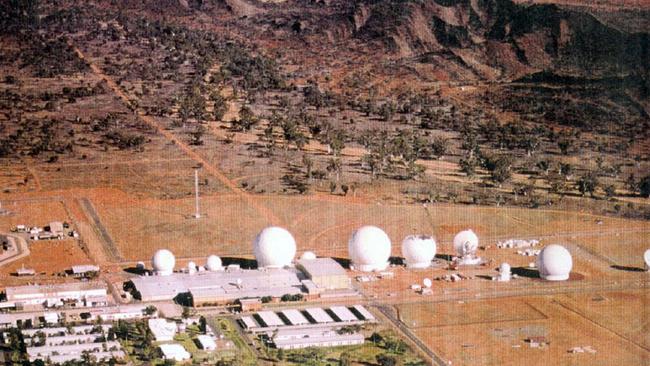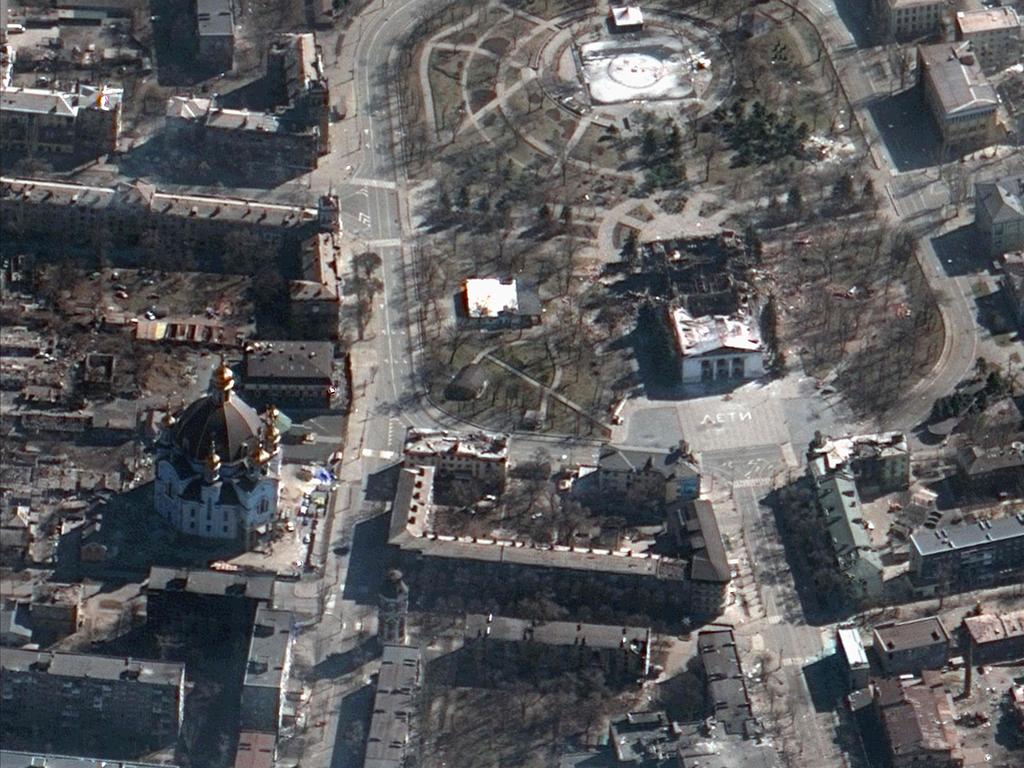
During the Cold War, the Office of National Assessments believed that US communications bases – Pine Gap, North West Cape and Nurrungar – which became joint facilities under the Hawke Labor government, were priority nuclear targets.
ONA also assessed, pretty optimistically, that so long as Soviet nukes were reasonably accurate, there should be limited fallout for our major population centres.
Nurrungar is no more, but Pine Gap and North West Cape are still important targets for any US military adversary – that is, China or Russia – seeking to blind the US at the start of a conflict. Attacks on these facilities needn’t be nuclear, they could involve powerful conventional missiles.
Vladimir Putin has given new salience to nuclear warfare by repeated and effective nuclear threats. Using hypersonic missiles to attack Ukraine indicates a Russian desire to keep allied minds fixed on hi-tech and high-destruction weapons.
A hypersonic weapon is not a nuclear weapon. The word hypersonic refers to the speed at which the missile travels. But there was no military purpose to using such a weapon.
As strategists say about the likely first use of nuclear weapons themselves, the purpose is to demonstrate capability and intent.
So is Australia taking an unnecessary risk by hosting Pine Gap, North West Cape and less well known facilities? The answer is absolutely not. We are a massive net beneficiary of the US alliance.
But the key nuclear deterrence element of our US alliance is almost never talked about. There is a strange squeamishness at work. We need to look clearly at all the strategic realities we face.
Australia is part of America’s extended nuclear deterrence. This means, like other US treaty allies, we do not need nuclear weapons ourselves to enjoy nuclear deterrence. If a nation used a nuclear weapon against Australia, the US would attack it with a nuclear weapon. If a nation threatened us with nuclear weapons, it would face the threat of US nuclear retaliation.
In recent decades, Western policymakers have tried to dial down all talk of nuclear weapons and reduce their relevance in the modern world.
The global moral consensus against the use of nuclear weapons in any context is still immensely strong. But with Russia’s moves, and with the emerging Moscow-Beijing axis, we need to face nuclear realities and make sure our own nuclear situation is credible.
How significant is the Beijing-Moscow de facto alliance? Scott Morrison is accurate to name an arc of authoritarians.
Most authoritarians share two key beliefs. Dictatorship is better than democracy. Western liberalism is their enemy.
The Russian military in Ukraine has shown itself expert at murdering civilians but pretty poor at conducting a conventional military operation.
It has overwhelming force superiority, is next door to its own home bases, has air superiority and almost infinitely greater resources than the innocent nation it’s attacking.
It is reasonable to infer Beijing is unimpressed with Moscow’s inability to win decisively in the way Putin undoubtedly told Xi Jinping would be the case.
Even in China, public opinion cannot be led to regard Russian failure as triumph. Chinese media have slowly distanced themselves a little from the official Russian narrative of the Ukraine conflict, showing more vision of attacks on civilians and acknowledging the invasion more directly.
None of this, however, remotely suggests that Xi or his government are fundamentally rethinking their alignment with Moscow.
It is still the case that Putin could emerge, eventually, as a strategic winner from the Ukraine invasion. Beijing almost certainly sees itself as a big beneficiary.
If Putin ends up with a sizeable chunk of Ukraine’s territory, more than he started the war with, and if sanctions against him are ultimately lifted, or at least their intensity lessened, and if the surviving Ukraine state is mired in poverty and subject to Moscow’s relentless, ongoing intimidation, then even if the Russian economy suffers in the meantime, Putin can spin this as a long-term strategic gain for Russia.
Meanwhile, western Europe has to maintain strategic concentration and resolve for the long term, something it has been extremely poor at since the end of the Cold War. It has made a good start, but the road is very long.
So long as Putin does not himself fall, Beijing can regard itself as likely to reap lots of benefits.
For a start, Beijing is conducting the world’s most ambitious nuclear arsenal expansion. Nuclear weapons are the one military domain where Russia has vast technical superiority to China. Russia will now be much more dependent on China than it ever has been in its history.
Beijing will likely provide Russia all the support it can get away with. It will try to avoid secondary sanctions on Chinese companies for trading with Russian companies against international rules. Beijing has deep expertise in this kind of operation.
It’s unlikely to create an immediate, total breach with the West by giving Russia unconditional support. But it doesn’t need to in order to gain from Russia all the benefits it might want. These include cut-price access to Russian energy, which will be looking for markets.
There will be countless other areas of Beijing-Moscow co-operation. These two nations are masters of cyber warfare and grey-zone tactics. Their emerging closeness makes life much more difficult for us. We urgently need to acquire asymmetric warfare capabilities that allow us to dominate our maritime approaches and take care of ourselves, at least for a time, if the US is otherwise engaged.
The government is making many defence announcements in the lead-up to the election. The Loyal Wingman, renamed the Ghost Bat (showing at least Defence hasn’t lost its sense of humour), will come into service in a few years. It’s a pilotless fighter plane. That’s a good capability. We don’t know how many we’ll get and when exactly we’ll get them.
The government has also announced a space command, which will lead to a space force, all many years down the track. Big announcement, no specifics.
You can’t solve today’s problems with symbolic announcements of actions to take effect decades into the future.
In the meantime, we do not have missiles in strategic numbers, which we could get right now, and we still do not have one armed drone. Beijing, Moscow and Washington show us by their actions that they take strategic capability seriously. Dismayingly, we still show we don’t.







Throughout the Cold War, Australia was a high-priority nuclear target. We should recall this now that the world’s largest nuclear weapons power, Russia, is in de facto alliance with the third largest nuclear power, China.